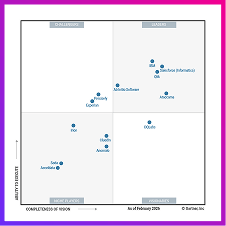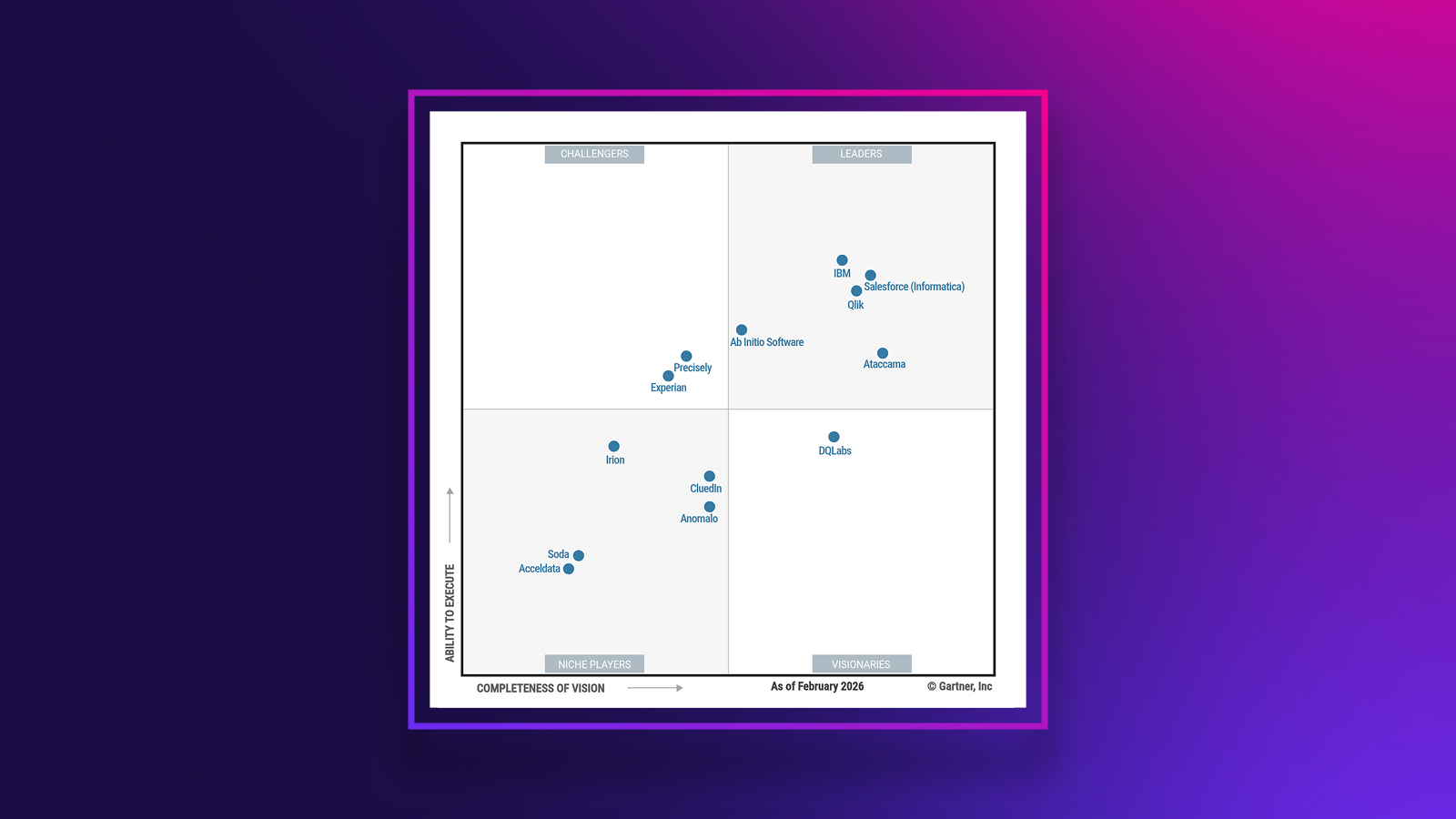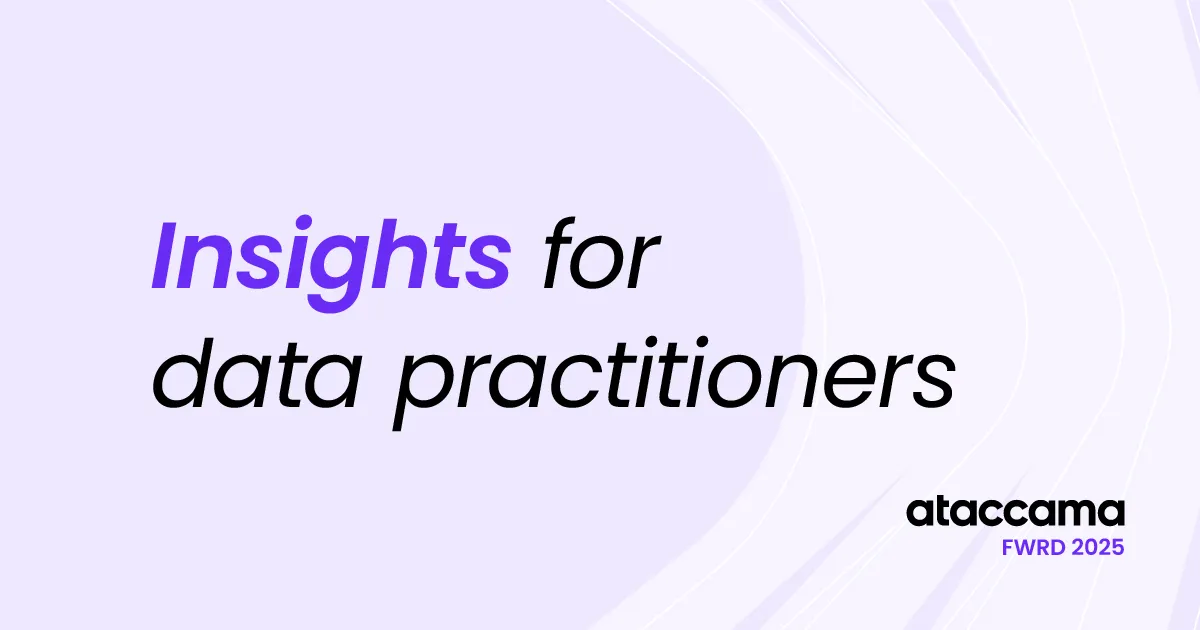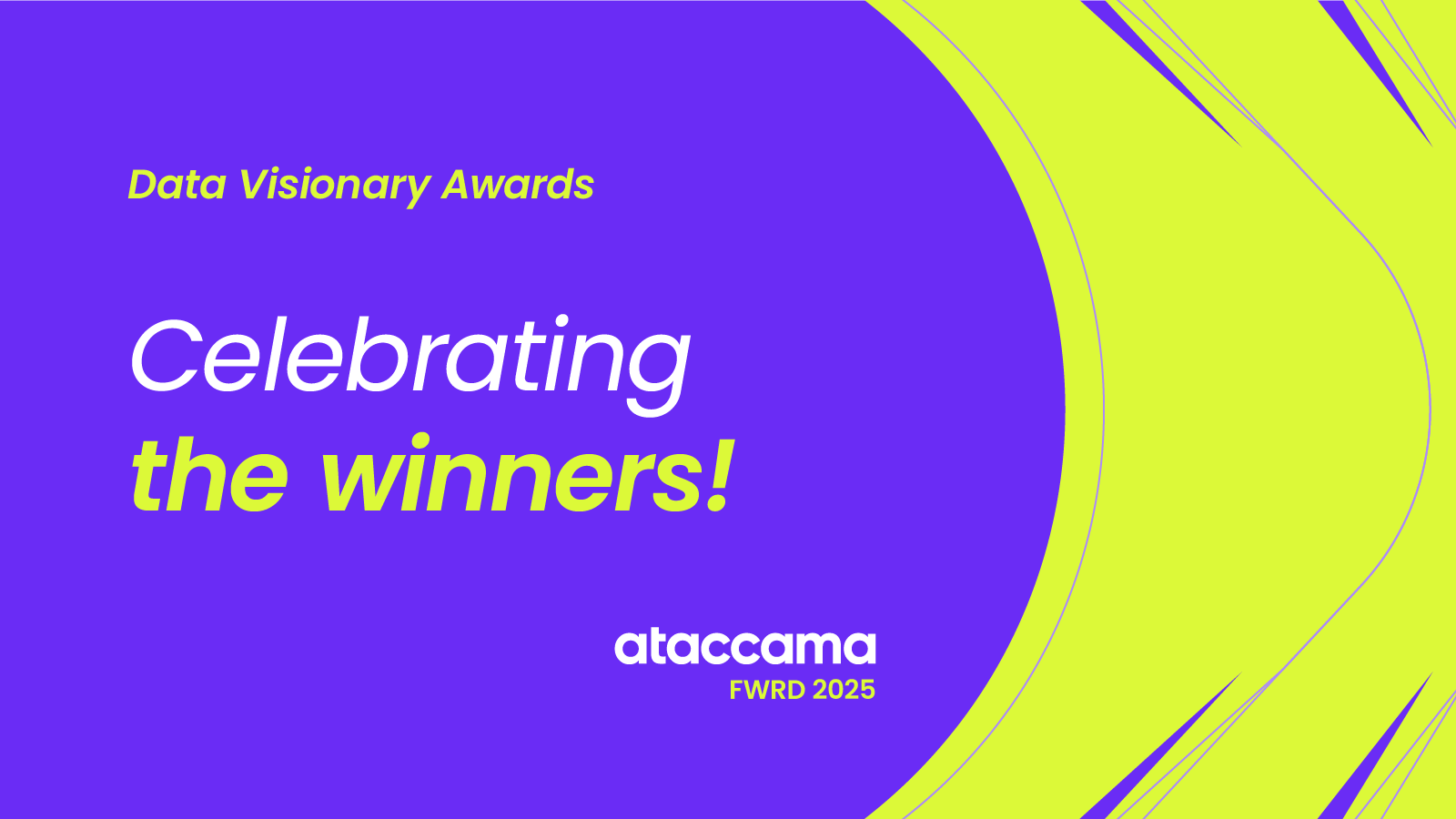Data trust and the Salesforce Informatica acquisition

Ataccama’s acronym-free first principles for data trust
By Mike McKee
The recent Salesforce Informatica acquisition and ServiceNow data.world acquisition are powerful signals of just how far the role of data has evolved. Two of the most successful software companies in the world are doubling down on something we’ve long believed: better data drives better outcomes.
But owning the data is only part of the story. What matters more is making sure the right data gets to the right people at the right time, with trust and transparency baked in.
Given Ataccama’s (rhymes with llamas) mission “To Power a Better Future with Data” and our focus solely on providing our customers with high-quality data for 10+ years, we welcome these moves.
These developments benefit their ecosystems and elevate the entire market. They validate the strategic importance of data management and reinforce the urgency of building AI-ready infrastructure. They also set the stage for a bigger conversation: Who owns the data journey, and how do we keep it open?
At Ataccama, we see this as our moment to lead.
In a multi-cloud world, you need neutrality. In a complex ecosystem, you need simplicity. In a fragmented landscape, you need trust. That’s why our strategy is grounded in Five First Principles:
Five First Principles for data trust:
- The more information, the better. The right data at the right time changes everything. Technology has always been about unlocking more information. Silicon gave us chips. Gates put a computer on every desk. Google made the world’s knowledge searchable. But today, we’re facing the next shift: it’s not just about more data – it’s about the right data. Trusted, timely, and connected. Data becomes more than an asset when that happens. That’s what we build for: turning complexity into clarity, and information into outcomes.
- Business moves at the speed of trust. Stephen Covey, author of “The 7 Habits of Highly Effective People”, best coined the phrase, “Trust is the engine of execution.” I remember attending a conference expecting to hear him speak, only to realize he had passed away, and it was his son carrying on the message. Still, the point landed: when trust is high, things move faster. Collaboration improves, decisions stick, and execution sharpens. Trust isn’t soft; it’s structural. It’s the invisible force behind high-performing organizations. And in data, it’s everything. Organizations must be able to trust the information and the data with which they make decisions.
- Artificial intelligence will change the world. I’ve always preferred the term Augmented Intelligence. Because that’s what today’s software and hardware truly offer: a chance to amplify how insight flows through the business. We’ve seen it firsthand. In the fall, we ran a hackathon focused on engineering productivity. More recently, one centered on functional use cases. Both reinforced the same thing: when data is trusted and accessible, augmented intelligence doesn’t just analyze, it accelerates. It’s all powered by advancements like Retrieval Augmented Generation, which sit at the core of generative artificial intelligence. That is a rare and exciting moment in tech – and we’re just getting started!
- Automation is essential. There’s simply too much data for humans to manage on their own. The math is pretty simple. It’s coming in faster, from more places, and in more formats than ever. We don’t treat automation as a nice-to-have; it’s a foundational design principle. From profiling to policy enforcement, quality to lineage, it all has to run quietly and continuously in the background. So your team can stop managing chaos and start focusing on what matters. Look around: how many people do you see on their “phones” producing data by the second? When you go anywhere, your mode of transportation is powered by data, and certainly generates it. Internet of Things devices are all around us. Data management companies must help organizations address this math challenge.
- Open systems win. Everyone wants to own the data, own the customer, own the market. But that kind of control doesn’t scale in a multi-cloud world. We’ve seen this story before. Microsoft once tried to own the operating system and the apps. Apple built its walled garden. Over time, both understood the power of open systems and the value of integrating with a broader ecosystem. That shift helped them become trillion-dollar companies. When I worked in cybersecurity, I used to joke that success meant knowing how to “ play well in the sandbox.” That principle holds true here, too. A modern data platform must work with everyone – clouds, apps, partners, and competitors. The same goes for AI agents. Nobody’s going to own the agent layer outright. The future is multi-agent, multi-platform, and deeply interconnected. And that’s exactly what we’re building for.
Now, let me speak to the recent acquisitions in our space—Informatica being acquired by Salesforce and data.world being acquired by ServiceNow. We respect what Salesforce and ServiceNow are doing. These bold, well-timed acquisitions reinforce data management’s strategic importance. Salesforce has done a great job making customer information more accessible and layering in reporting, analytics, and artificial intelligence. Buying Informatica deepens that commitment to owning the customer data lifecycle.
ServiceNow, meanwhile, has made its name by streamlining internal business processes. Unsurprisingly, they want to ensure that the data flowing through those processes is accurate, complete, and trustworthy – something data.world will help with.
These are smart moves for their ecosystems. And they further validate the importance of the space we’ve been building for years.
But they also highlight a fundamental tension. The more platforms consolidate control, the more fragmented customer data becomes.
As a buyer, you now face a choice: narrowing the aperture with a single vendor’s ecosystem, or openness across your full tech stack.
At Ataccama, we’re not trying to own your data. We’re here to help you trust it.
The Five First Principles outlined above are core to our direction. We’ve built the Agentic Data Trust Platform to do precisely that: unify governance, quality, lineage, observability and master data management in one layer that works across your landscape. It ensures organizations work with high-quality data from the right sources to make better decisions faster and take full advantage of large and small models to augment intelligence. Open, automated, and Augmented Intelligence-ready, “To Power a Better Future with Data.”
Big thanks to all of the Ataccamers, our customers, and our partners for pushing this mission forward.
Onwards and Upwards!
Mike
Mike McKee
Mike is the CEO at Ataccama, appointed in August 2023, with 30 years of leadership in data- and AI-driven companies—most recently as CEO of Dotmatics and ObserveIT (now Proofpoint) and in senior roles at Rapid7 and PTC. A former pro hockey player and father of four, he still enjoys hockey, and being active with family and friends.








